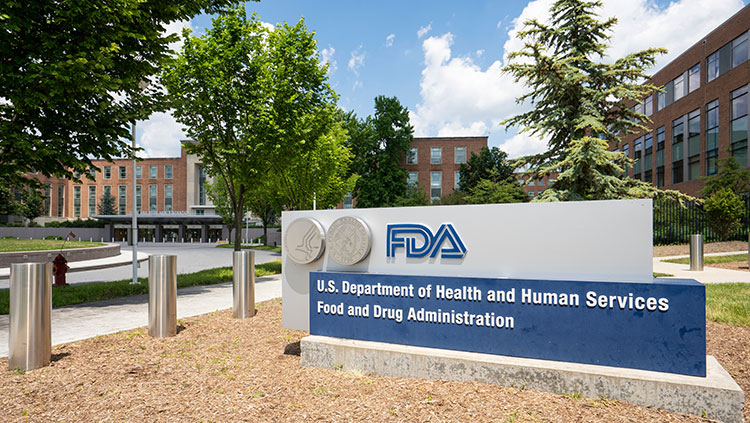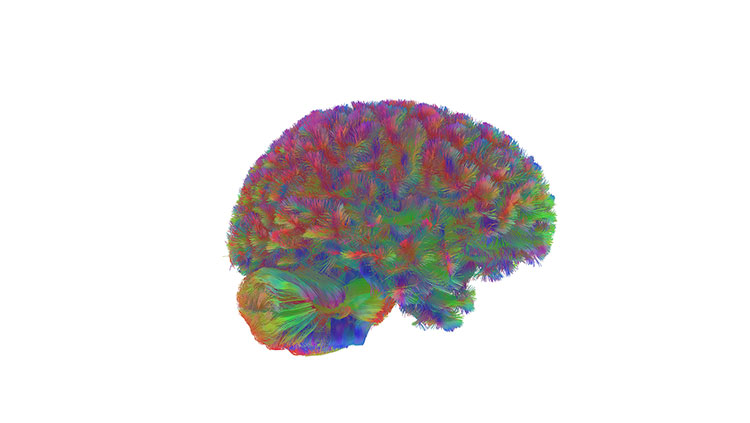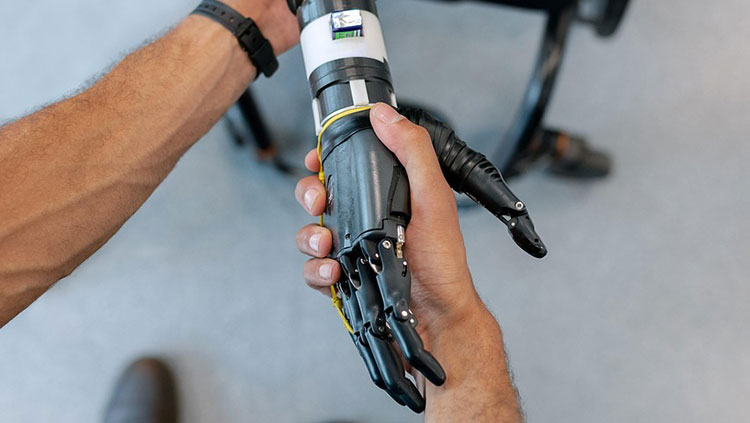ICYMI: FDA Approves New Drug to Treat Alzheimer’s
- Published13 Aug 2024
- Author Bella Isaacs-Thomas
- Source BrainFacts/SfN

On July 2, the Food and Drug Administration (FDA) approved a new treatment for people living with early Alzheimer’s disease. Dubbed donanemab, the drug is the third of its kind to earn FDA approval. It's designed to slow Alzheimer’s progression in patients, rather than solely address symptoms associated with the disease.
Donanemab, which is also known by the brand name Kisunla, is administered via IV infusion. It works by targeting and removing built-up amyloid plaques — sticky pieces of beta-amyloid protein — from the brains of people with Alzheimer’s. The FDA evaluated clinical trials involving patients with confirmed accumulation of beta-amyloid in their brains who also had mild dementia or mild cognitive impairment. People who fall into that category are now eligible for the newly approved drug. Patients who participated in the trials experienced around 40% less decline in their capacity to more independently complete daily tasks, according to Time.
The FDA has identified headaches and ARIA, or amyloid-related imaging anomalies, as the two most common side effects associated with donanemab. Just under half of patients who took the drug did not have any visible amyloid in their brain scans after a year of treatment, and 69% percent showed the same results after 18 months, according to Time. The publication also said amyloid is likely to reaccumulate once people are no longer taking donanemab, so recipients should be monitored over time and can pursue further treatment if those levels climb up again.
Big Picture: Donanemab is one of three drugs approved by the FDA to target amyloid buildup in the brain. Lecanemab (Leqembi) and aducanumab (Aduhelm) are the other two treatments in its class, but aducanumab has since been discontinued by its manufacturer. Donanemab appears to be the most effective option so far — lecanemab slowed cognitive decline by 27% after 18 months during clinical trials, a metric around 8 percentage points fewer compared to donanemab. The pharmaceutical company Eli Lilly, which makes donanemab, said in a news release that a six-month treatment costs around $12,500, a 12-month treatment costs $32,000, and an 18-month treatment costs nearly $50,000.
Read More: A New Alzheimer’s Drug May Be the Most Effective One Yet. Time
More Top Stories
- Newly identified neural circuits in mice could help explain the placebo effect in humans. Nature
- A modified parasitic protozoan could potentially be used to cross the blood-brain barrier and deliver therapeutic interventions. Popular Science
- A new neural interface allows people to control prosthetic limbs with their minds. Washington Post
- A hormone that may boost bone health in post-partum mothers could serve as a future osteoporosis treatment. Science News
- New research examined brain regions involved in blushing by monitoring brain activity while participants watched themselves perform karaoke. Forbes
- Long-term benzodiazepine use may shrink two brain regions that influence mood regulation and memory. Live Science
- A study found people who stay up late may have a cognitive edge compared to those who wake up early, but getting enough sleep is crucial for brain function either way. The Guardian
- Researchers observed how psilocybin — the chemical found in psychedelic mushrooms — disrupts various brain networks. NPR
- A brain-imaging study among children suggests sex and gender largely map onto different parts of the brain from one another. Scientific American
CONTENT PROVIDED BY
BrainFacts/SfN
References
What to Read Next
Also In Neuroscience in the News
Trending
Popular articles on BrainFacts.org


.jpg)
















